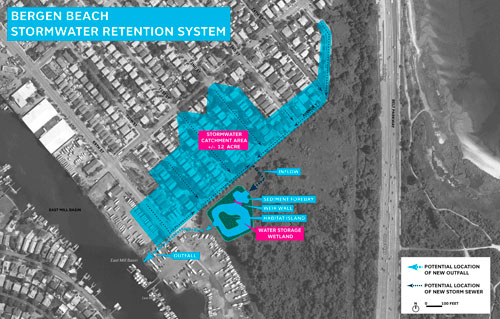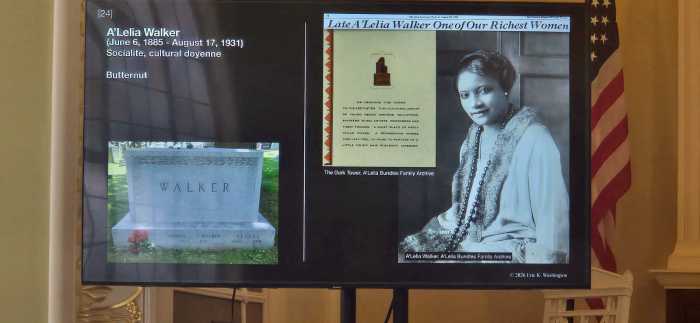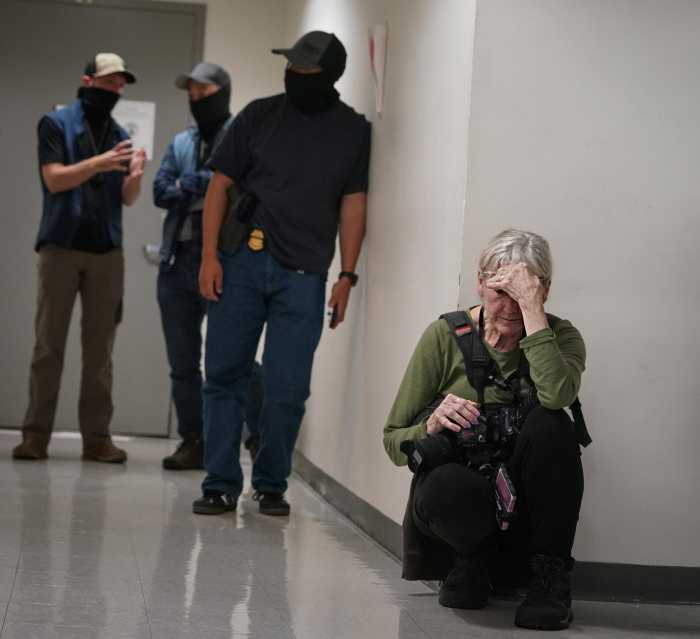Residents overwhelmingly supported funding a costal protection study and a stormwater retention system at the final public meeting of the New York Rising’s Southeast Brooklyn Waterfront Planning Committee on Nov. 12.
But it is up to the committee to make the final decision on how to spend the $4.38 million dollars allocated to Bergen Beach, Mill Basin, Mill Island, and Marine Park.
“Reflecting on this public feedback — and feedback received online, at civic meetings, et cetera — the committee decides which projects will be proposed for funding,” said Chelsea Muller, the regional lead of the New York Rising Reconstruction Program.
The costal protection study — which would include coordination with the Army Corps of Engineers and cost $500,000 — would be a one-year study designed to determine the best way to protect the coastal neighborhoods before the next superstorm.
The stormwater retention system, which could also reduce sewer backup, would be a five-year project that would use land owned by the Parks Department to create a wetland. The retention system would link to the new sewer system the city is planning to install, and rainwater that previously flooded neighborhoods would be rerouted to the new sewer. The project would cost $10 million dollars but the committee would only contribute $500,000.
Other project ideas considered include a stormwater capture pilot program, a parking lot revamp that would offer free lighting and cell phone charging stations, an emergency education program to prepare locals for the next storm, a recovery community center, a facility upgrade program to provide grants to medical clinics and other facilities that provide care during emergencies, and a homeowner’s assistance program to give locals individualized advice on storm-proofing their homes.
Muller said past New York Rising committees usually select multiple programs to fund and if they go over budget, they apply for additional funding or grants.
“Typically, we’ve seen committees propose to fund a suite of projects that slightly exceed the community’s allocation, to provide contingencies in implementation, if projects are funded with other monies, come in under budget, and so on,” she said.
The funded projects will be announce in January.






















